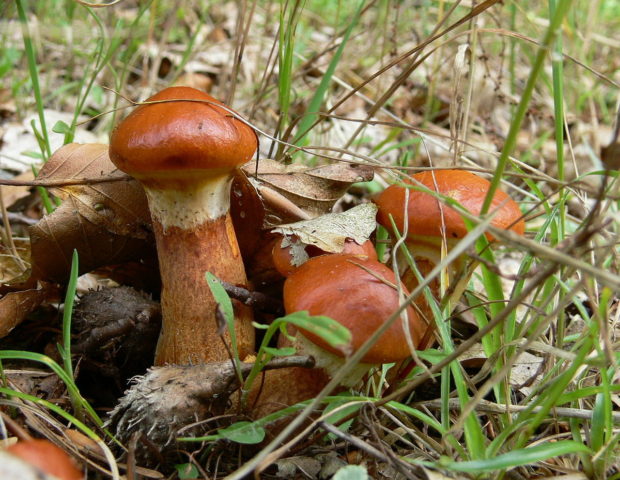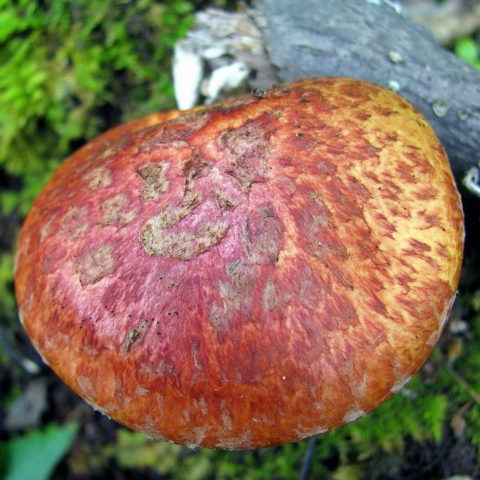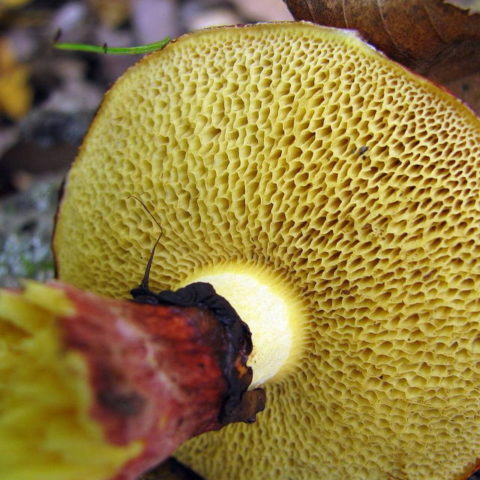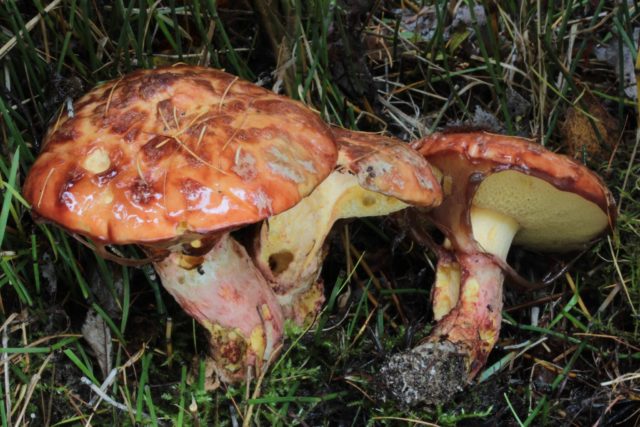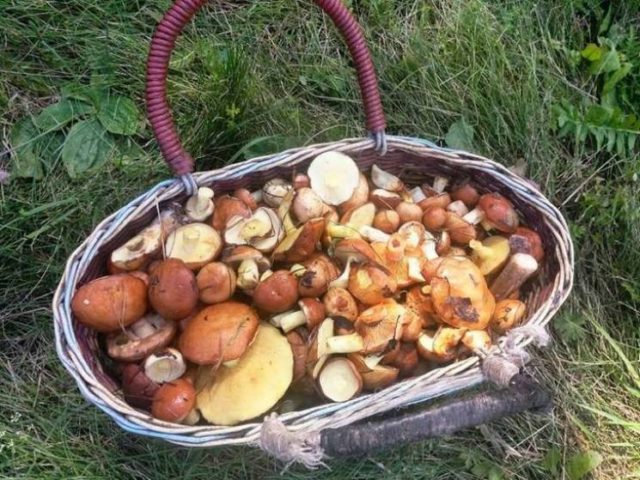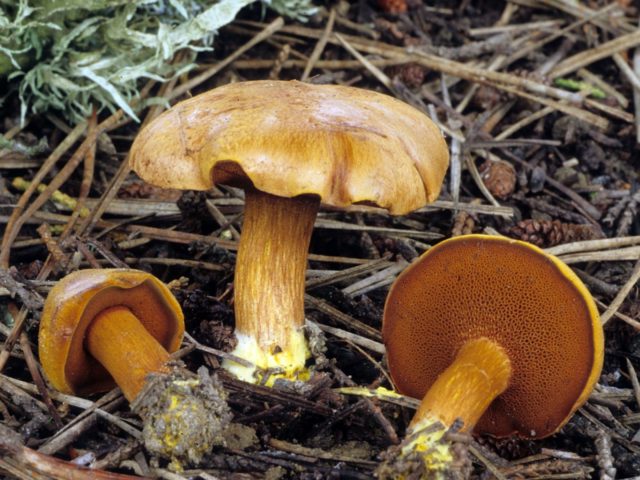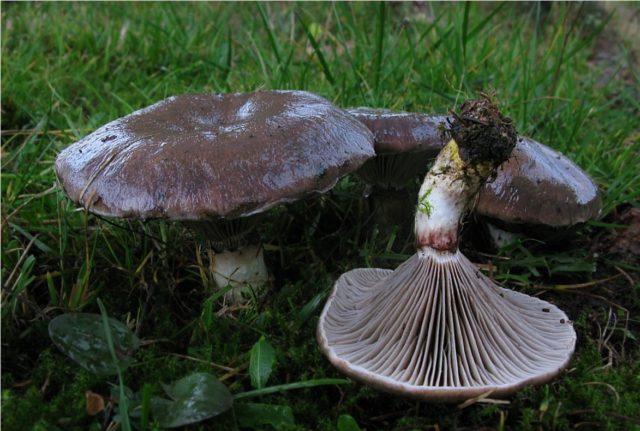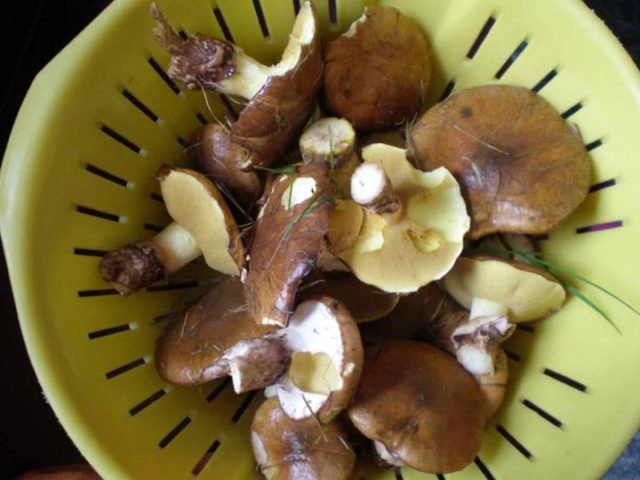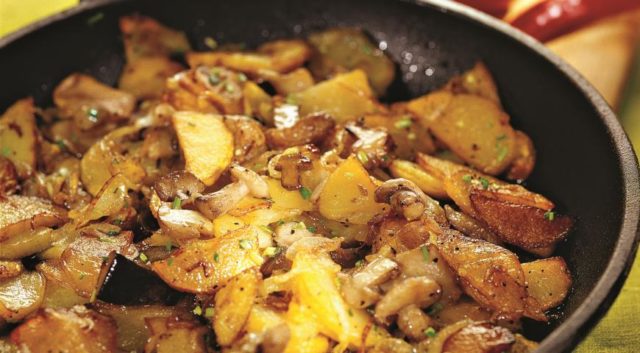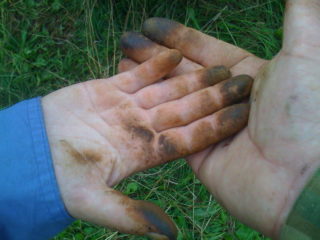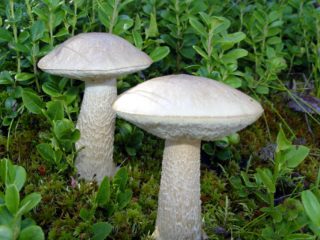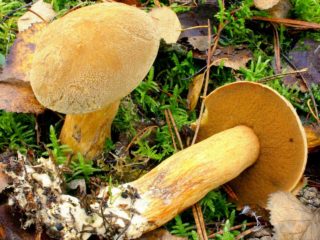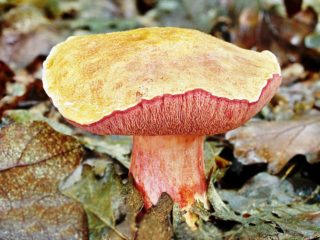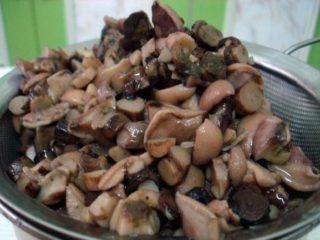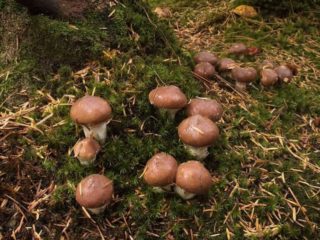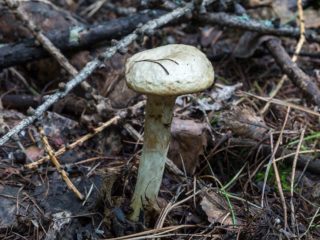Content
A remarkable oiler is a mushroom of the Boletov family. Like all boletus, it has a characteristic feature in the form of a slippery oily cover of the cap. The fungus is widespread in the Northern Hemisphere, where it grows almost everywhere. Similar to other representatives of the Boletovs, notable oil cans can be eaten with minimal heat treatment.
Where remarkable boletus grows
The geography of the oiler's range is quite extensive. In Eurasia, it can be found almost throughout the entire territory of coniferous forests, from the Ural Mountains to the Far East. There is no place in the Siberian taiga where this mushroom is not found.
In addition, the oiler is remarkable also thrives in North America - it is distributed from the west to the east of the United States, from the east coast of the Pacific Ocean to the west coast of the Atlantic. The American area of distribution of the fungus from the north is limited by Canada, from the south - by the boundary between the temperate and subtropical climates.
Like all boletus, this mushroom prefers proximity to conifers, with which it enters into symbiosis in the form of mycorrhiza. The best symbiotic relationship in this type of fungi is "built" with larch trees. It is under this tree that you can find the largest colonies of notable oil can.
The oiler is very fond of moisture, therefore, in forests with high humidity (an abundance of streams, rivulets and swamps), it can be found more often than in places with a dry climate.
What do the remarkable boletus look like
The mushroom got its Russian name for a cap of an original color and texture that attracts the eye. This variety has an attractive appearance, and it is quite difficult to confuse it with other oils.
The mushroom cap is 4 to 12 cm in diameter. At the beginning of the growth of the fungus, it has a spherical shape, later changing to a conical, and then to an outstretched one. The mucous surface of the cap has a dark red or brownish-red tint. Small fragments of various shades of gray are located across the entire area of the cap.
The hymenophore has a yellowish tubular structure. As the fungus grows, the color changes to yellow-brown, then completely brown. Pore diameter - no more than 1 mm.
The leg has a length of 3 to 12 cm, and its diameter rarely exceeds 20 mm. The shape of the leg is cylindrical, often hollow inside. The ring, located 2-3 cm from the cap, divides the leg into two zones: upper, clean, yellow and lower, covered with burgundy scales.
The flesh of the mushroom is yellow. The cut in the open air turns yellow-pink after about 30 minutes, after 3-4 hours the cut color changes to brown. The color of the spore powder is yellow-brown.
The appearance of a remarkable oiler is shown in the photo:
Is it possible to eat boletus noteworthy
The notable butter dish belongs to conditionally edible mushrooms. His attitude to this group is due not only to taste, but the fact that this type of mushroom is extremely wormy.
To reduce the risks of collecting wormy mushrooms, it is recommended to carry it out in the first half of their fruiting time - from late June to mid-August.
Taste qualities of oil notable
The mushroom belongs to the third category of edibility, its taste is assessed as satisfactory. The mushroom smell is barely noticeable; during heat treatment, it almost completely disappears.
Benefit and harm
The benefit of the oiler is remarkable, like all representatives of mushrooms, is its high protein content. It is a high-calorie food that can quickly satisfy hunger.
It should be remembered that the use of mushrooms has a number of restrictions and contraindications. The harm from eating mushrooms can only appear if they are collected in the immediate vicinity near roads or railways, as well as industrial enterprises. Notable oils tend to accumulate in themselves toxins and salts of heavy metals, which are almost impossible to remove from them.
In addition, the oiler is remarkable, like all mushrooms, has direct contraindications - it cannot be used by children under 5 years old, pregnant women, as well as people suffering from gastrointestinal diseases.
Collection rules
The fruiting time of the oiler is remarkable - from late June to early October, depending on climatic conditions. The peak of harvest falls in the second half of summer, while the fruiting bodies are not yet susceptible to massive attacks by worms.
The optimal harvest time is considered to be the 2nd or 3rd day after rain, as rain and heavy dew are an excellent growth stimulator.
It is recommended to efficiently collect boletus in coniferous or mixed forests. They prefer well-lit areas of the forest: meadows and edges. Mushrooms can often be found along paths and small roads. In the presence of high humidity, they are found in more shaded areas. When collecting, you need to be careful, since most of the mushrooms are hidden under the coniferous litter.
False doppelgangers of noteworthy
Notable butterflies have several doubles, very similar to them in appearance. The degree of similarity of these mushrooms is so great that it is possible to determine whether it is an oiler or its counterpart by cutting them off and carefully examining the structure of the stem and hymenophore. It is very difficult to determine the belonging to one or another species of the considered mushrooms only by the appearance of the cap. Nevertheless, the error in the definition will not have critical consequences - all counterparts of the oiler of noteworthy are (albeit conditionally) edible.
The main "candidate" for the counterpart of a remarkable oiler is a pepper mushroom. It differs from the original in the absence of a ring on the leg and a red tint of the hymenophore; in butter it has a yellow or yellow-brown color.
Another double is spruce moss. When viewed from a height of human growth, it is also easy to confuse it with a remarkable oiler. Differences appear after cutting and inspection:
- the hymenophore of spruce moss is lamellar, not tubular;
- the amount of mucus on the cap is too large, which is not typical for butter in general.
Spruce moss is edible (perhaps even more so than the oiler in question), but it is not appreciated by Russian mushroom pickers.One of the reasons for such a dislike for this mushroom is that its mucus stains other species in purple.
The use of oil notable
Notable oil can is almost a universal mushroom, since it can be prepared in a variety of ways: dry, fry, boil, salt, etc. Notable oil can be used to make first and second courses, pickle them and use them to make sauces.
At the same time, one should not forget about the mandatory processing of fruit bodies after collection. It pursues the goal not only to protect a person from possible poisoning. If the heat treatment is carried out incorrectly, it is possible to completely deprive the product of its taste.
Any processing begins with sorting the collected material: mushrooms are checked and identified so that inedible ones do not accidentally get into edible ones. Next, remove the skin from the caps and rinse them well.
After the mushrooms have been washed, they must be cut and rinsed again in cold water. The water must necessarily drain, it is not recommended that after cutting the fruit bodies are in contact with water for too long. In this state, they are able to absorb it very well, from which they can become inelastic, and their taste also changes in the negative direction.
After the second washing has been carried out, you can proceed to the heat treatment of the fruit bodies. If mushrooms need to be fried, they are immediately placed in oil in a preheated pan. If you intend to cook, you need to put the fruit bodies in cold water and bring to a boil.
Heat treatment lasts no more than 20 minutes. For so long, the fruit bodies are stewed in a pan or kept in boiling water. During this time, no other products are added to them; they must be added to the dish after this period.
Conclusion
The remarkable oiler has an attractive appearance, but its taste makes it possible to classify it as conditionally edible. Oiler notable mainly grows in humid coniferous forests, preferring the neighborhood with larch trees. The time of its collection falls on the second half of the summer. This variety has universal application, it is used boiled, stewed, fried and salted.
